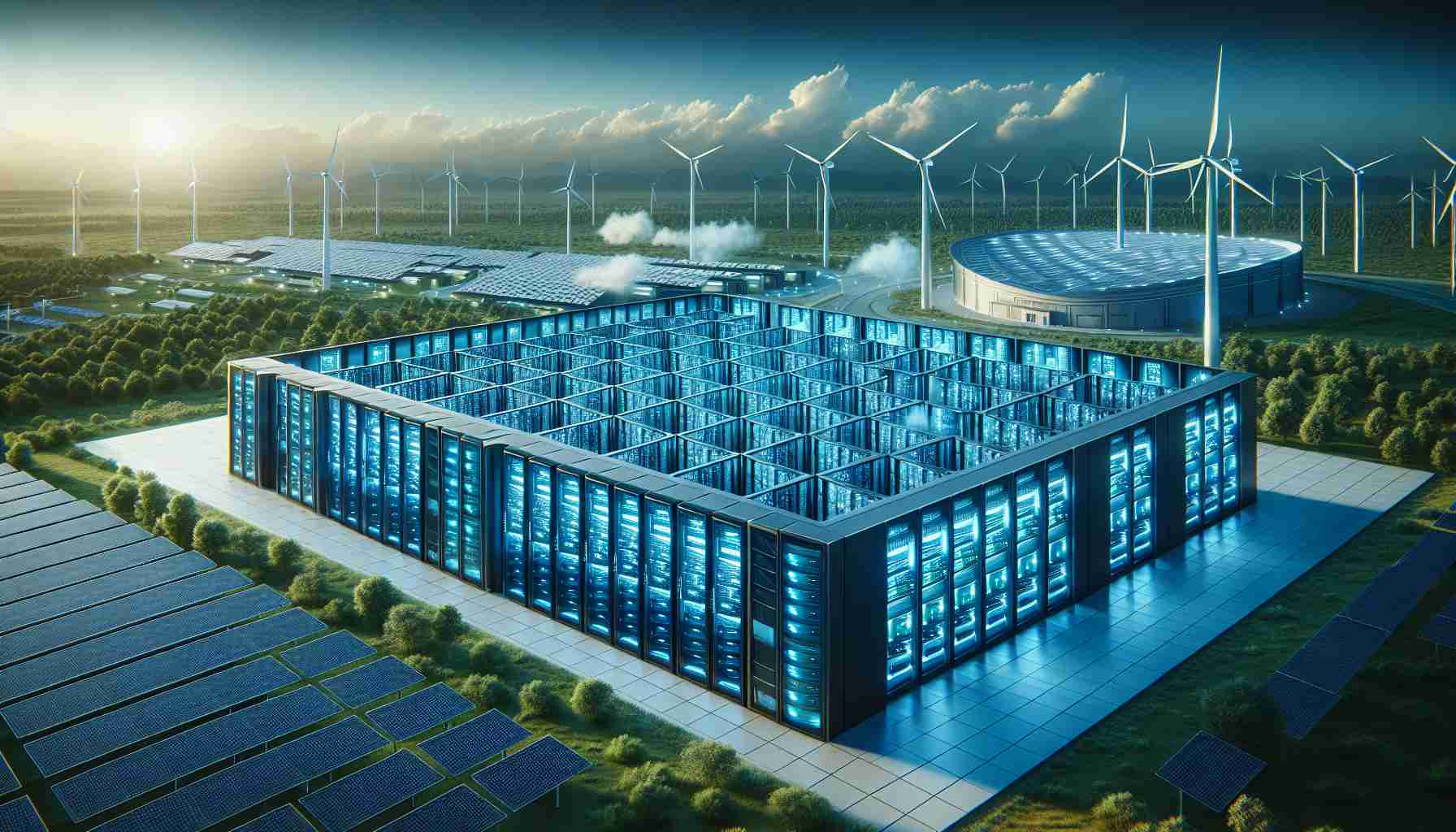Tech giants like Amazon, Microsoft, and Google are leading the charge in integrating renewable energy sources into their data centers. These companies are making significant investments in sustainable energy to power the infrastructure necessary for their advanced technologies.
Amazon
Amazon recently announced partnerships for the development of small modular reactors to power their data centers. These reactors, built by Energy Northwest, are set to provide clean energy solutions in Washington. Amazon’s investment in X-Energy, a company focused on small nuclear reactors, further cements their commitment to sustainable energy.
Microsoft
In a groundbreaking deal, Microsoft has teamed up with Constellation Energy to source nuclear energy for the next two decades from the Three Mile Island plant in Pennsylvania. This move aligns with Microsoft’s goal to achieve carbon negativity by 2030 and expand data center operations sustainably.
Google
Google is also making strides towards a greener future by purchasing nuclear energy from Kairos Power. The collaboration aims to establish small modular reactors in Tennessee by 2030, with further expansions planned until 2035. This initiative is projected to supply up to 500 megawatts of carbon-free energy to the U.S. power grid.
OpenAI
OpenAI’s CEO, Sam Altman, is backing the startup Oklo, which focuses on small modular nuclear reactors. Oklo’s innovative approach involves selling energy directly to customers through long-term contracts, supported by recent authorization from the U.S. Department of Energy for site exploration at the Idaho National Laboratory.
In conclusion, these tech giants are revolutionizing their energy strategies to reduce carbon emissions and promote a more sustainable future for data center operations.
New Energy Solutions: Tech Giants’ Sustainable Endeavors in Data Centers
In the pursuit of sustainability, tech giants are actively embracing renewable energy sources to power their data centers. While the previous article highlighted key initiatives by Amazon, Microsoft, Google, and OpenAI, there are additional crucial aspects to consider in this growing trend towards green energy solutions.
Key Questions:
1. How are tech giants influencing renewable energy adoption in the data center industry?
2. What challenges do they face in implementing these renewable energy strategies effectively?
3. Are there any controversies surrounding the transition to renewable energy for data centers?
Key Challenges and Controversies:
1. Intermittency: One of the challenges associated with renewable energy sources such as solar and wind is their intermittency, which can impact the reliability of power supply to data centers.
2. Infrastructure Upgrades: Integrating renewable energy into existing data center infrastructure may require significant investments in upgrading systems and technologies to optimize energy utilization.
3. Regulatory Hurdles: The transition to renewable energy may face regulatory challenges and policy uncertainties that could slow down the adoption of sustainable solutions.
Advantages and Disadvantages:
Advantages:
– Environmental Impact: By shifting to renewable energy, tech giants can significantly reduce their carbon footprint and contribute to global efforts in combating climate change.
– Cost Savings: Over the long term, investing in renewable energy sources can lead to cost savings through lower energy expenses and potential incentives for sustainable practices.
– Corporate Social Responsibility: Embracing renewable energy showcases a commitment to corporate social responsibility and can enhance the company’s reputation among environmentally conscious consumers.
Disadvantages:
– Initial Investment: The initial capital required to implement renewable energy solutions in data centers may be substantial, impacting short-term financial considerations.
– Technical Integration: Integrating diverse renewable energy sources into data center operations may pose technical challenges related to compatibility and scalability.
– Dependency on External Factors: Reliance on weather conditions for solar and wind energy generation could introduce risks related to energy availability and stability.
In conclusion, while the transition to renewable energy presents challenges, tech giants are actively working towards sustainable solutions to power their data centers and drive environmental stewardship in the tech industry.
Suggested related link: Department of Energy
